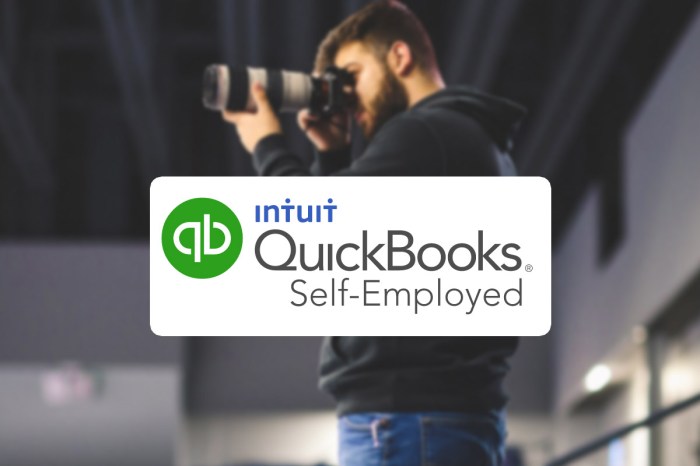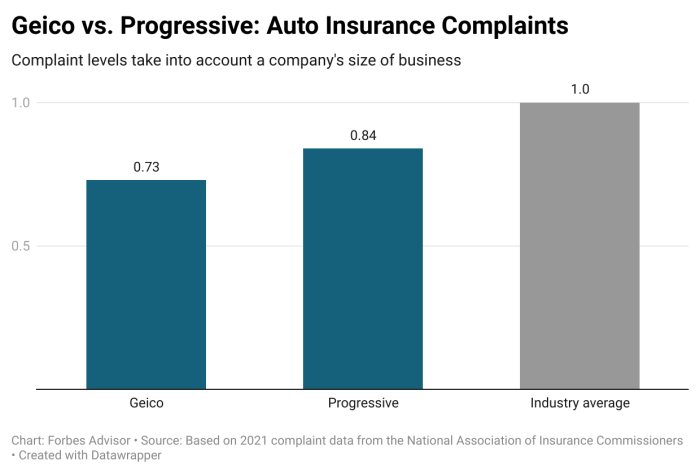Delving into The Future of Bookkeeping with QuickBooks Self-Employed, this introduction immerses readers in a unique and compelling narrative, with a focus on how modern technology is reshaping traditional bookkeeping practices. As more individuals embrace self-employment, the need for efficient financial management tools like QuickBooks Self-Employed becomes increasingly crucial.
This article explores the key benefits, integration capabilities, reporting features, and customization options that make QuickBooks Self-Employed a game-changer in the world of bookkeeping.
In the following sections, we will delve deeper into the intricacies of how QuickBooks Self-Employed simplifies bookkeeping tasks, integrates with various financial tools, provides robust reporting and analysis features, and offers customization and scalability to meet the evolving needs of different businesses.
Benefits of QuickBooks Self-Employed for Bookkeeping
QuickBooks Self-Employed offers numerous benefits for self-employed individuals when it comes to streamlining bookkeeping tasks and organizing financial data effectively.
Streamlining Bookkeeping Tasks
- Automated Expense Tracking: QuickBooks Self-Employed automatically categorizes expenses, saving time and reducing manual entry errors.
- Invoicing: Users can easily create and send professional invoices, helping to speed up the payment process.
- Mileage Tracking: The app allows for automatic mileage tracking, ensuring accurate records for tax deductions.
Key Features for Self-Employed Individuals
- Simplified Tax Filing: QuickBooks Self-Employed helps users track deductible expenses and estimate quarterly taxes, making tax time less stressful.
- Integration with Financial Institutions: Users can connect their bank accounts to automatically sync transactions, providing a real-time view of their financial status.
- Profit and Loss Reports: The software generates detailed reports to help self-employed individuals understand their business performance and make informed decisions.
Organizing Financial Data Effectively
- Receipt Capture: Users can snap photos of receipts and store them digitally, eliminating the need for paper clutter and ensuring all records are in one place.
- Income Tracking: QuickBooks Self-Employed allows for easy tracking of income streams, providing a comprehensive overview of financial activities.
- Time Tracking: Self-employed individuals can track billable hours and manage projects efficiently, improving productivity and profitability.
Integration Capabilities of QuickBooks Self-Employed
QuickBooks Self-Employed is designed to seamlessly integrate with various financial tools and platforms, making it easier for users to manage their bookkeeping tasks efficiently.
Syncing Bank Accounts and Credit Cards
Syncing bank accounts and credit cards with QuickBooks Self-Employed is a straightforward process that involves linking your accounts to the software. This allows for automatic importing of transactions, saving time and reducing manual data entry errors.
- Users can connect their bank accounts and credit cards directly to QuickBooks Self-Employed through a secure connection.
- Transactions are automatically imported into the software, categorizing them based on predefined rules or user input.
- Users have the option to review and reconcile transactions, ensuring accuracy in the financial records.
Advantages of Seamless Integration
By integrating with other financial tools and platforms, QuickBooks Self-Employed offers several benefits for accurate financial tracking and streamlined bookkeeping processes.
- Real-time syncing ensures that financial data is up to date, providing users with a clear overview of their current financial status.
- Automation of data entry reduces the risk of manual errors and saves time on tedious bookkeeping tasks.
- Integration allows for better organization of financial information, making it easier to generate reports and analyze business performance.
Reporting and Analysis Features in QuickBooks Self-Employed
QuickBooks Self-Employed offers a variety of reporting and analysis tools to help users monitor their financial health and analyze business performance effectively.
Overview of Reporting Tools
- Profit and Loss Statement: This report provides a summary of income, expenses, and overall profitability over a specific period, giving users a clear picture of their financial status.
- Balance Sheet: The balance sheet report shows the assets, liabilities, and equity of the business, helping users understand the financial position at a particular point in time.
- Expense Tracking: QuickBooks Self-Employed allows users to categorize and track expenses, providing detailed reports on where the money is being spent.
Benefits of Different Report Options
- Customization: Users can customize reports based on specific criteria such as date range, categories, and tags, allowing for tailored insights into financial data.
- Trend Analysis: By comparing reports over different time periods, users can identify trends and patterns in their financial performance, enabling better decision-making.
- Tax Preparation: QuickBooks Self-Employed helps users prepare for tax season by generating reports that categorize income and expenses, simplifying the filing process.
Business Performance Analysis
- Performance Metrics: Users can track key performance indicators (KPIs) through reports on sales, expenses, and profitability, enabling them to assess and improve business performance.
- Client Insights: QuickBooks Self-Employed provides reports on client payments and invoicing, helping users identify top clients and areas for growth in their business.
- Year-End Review: At the end of the fiscal year, users can generate comprehensive reports to evaluate business performance, set goals, and plan for the coming year.
Customization and Scalability with QuickBooks Self-Employed
QuickBooks Self-Employed offers various customization options to tailor the platform to specific business needs, ensuring a personalized experience for users.
Customization Options
- Users can customize invoices, estimates, and reports with their business logo and colors to maintain brand consistency.
- Adjustable settings allow for personalized categorization of expenses, income, and tax deductions based on individual business requirements.
- Integration with third-party apps and tools provides additional customization possibilities to streamline workflow processes.
Scalability for Business Growth
- QuickBooks Self-Employed can scale alongside the business as it grows, accommodating an increasing number of transactions, clients, and employees.
- The platform offers tiered pricing plans with varying features to support businesses of all sizes, ensuring scalability without compromising functionality.
- Users can easily upgrade to more advanced versions of QuickBooks as their business expands, maintaining continuity in their bookkeeping processes.
Flexibility for Changing Business Requirements
- QuickBooks Self-Employed provides flexibility for adapting to changing business requirements, allowing users to modify settings, categories, and reports as needed.
- Users can add or remove features based on evolving business needs, ensuring that the platform remains aligned with current operations.
- The platform's user-friendly interface makes it easy to make adjustments on the go, enabling quick responses to changing circumstances.
Final Thoughts

In conclusion, The Future of Bookkeeping with QuickBooks Self-Employed paints a picture of a dynamic landscape where technology seamlessly intersects with financial management for self-employed individuals. By harnessing the power of QuickBooks Self-Employed, businesses can navigate the complexities of bookkeeping with ease, ensuring accurate financial tracking and informed decision-making.
Embrace the future of bookkeeping today with QuickBooks Self-Employed and stay ahead in the competitive world of self-employment.
Detailed FAQs
How does QuickBooks Self-Employed streamline bookkeeping tasks?
QuickBooks Self-Employed automates various bookkeeping processes, such as tracking income and expenses, categorizing transactions, and generating financial reports, saving time and reducing manual errors.
Can QuickBooks Self-Employed integrate with other financial tools?
Yes, QuickBooks Self-Employed offers seamless integration with popular financial platforms and tools like PayPal, Square, and various banks, allowing for a holistic view of financial data.
How can QuickBooks Self-Employed help in analyzing business performance?
QuickBooks Self-Employed provides detailed reporting and analysis tools that offer insights into business performance, trends, and financial health, enabling self-employed individuals to make informed decisions for growth.
Is QuickBooks Self-Employed customizable to suit specific business needs?
Absolutely, QuickBooks Self-Employed offers customization options to tailor the platform to individual business requirements, ensuring flexibility and adaptability as the business evolves.









